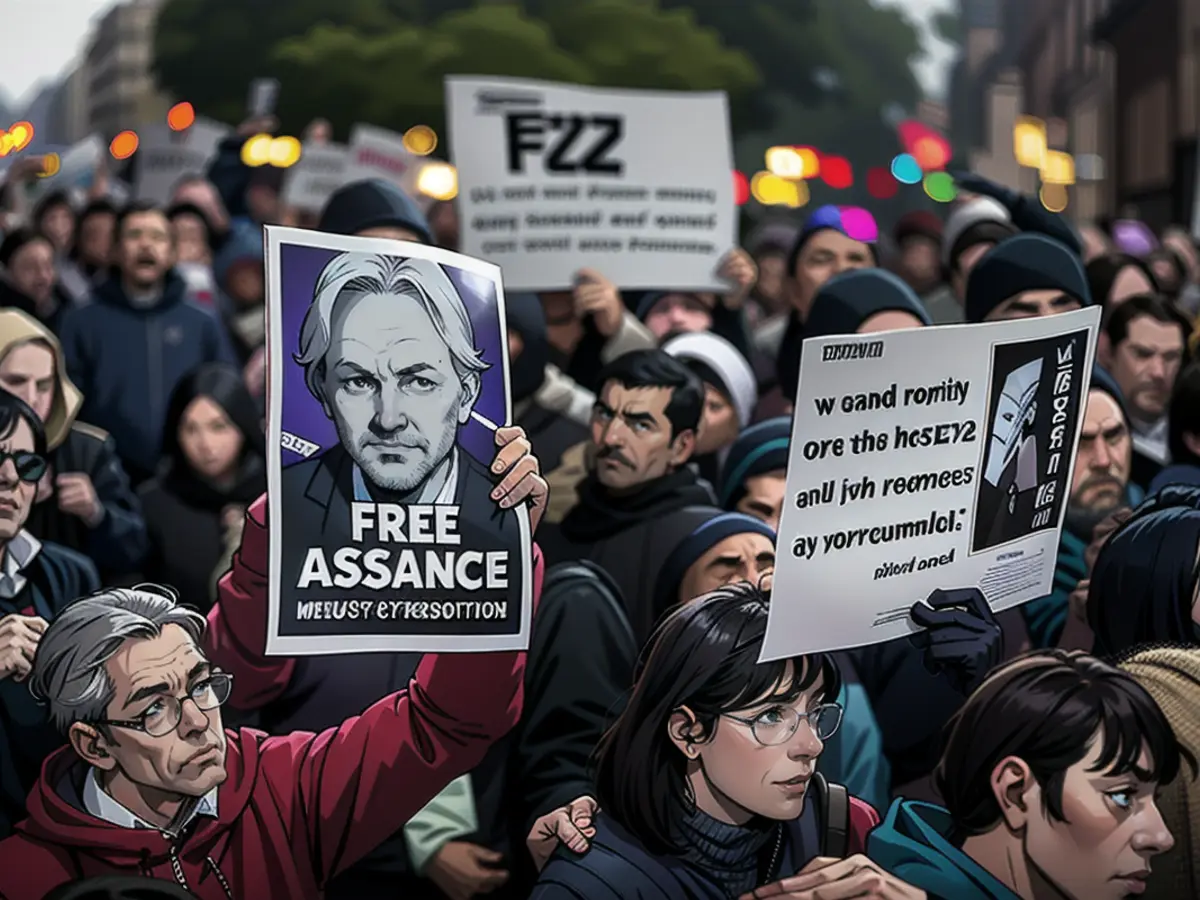Why Julian Assange's Future is Crucial for Press Freedom
The Indian government wants to make an example of Gillian, a journalist who they believe has gone too far. They apply for her to be extradited to stand trial in Delhi, potentially facing up to ten years in jail. However, it's unlikely that London would hand her over or Washington would accept an American journalist being incarcerated in an Indian jail without causing a major international outcry.
Now, let's shift our focus to another journalist, Julian. He's an Australian living in London, but instead of exposing Indian secrets, he's leaking American ones. The US is furious and considers extraditing him to face jail time. But the reaction amongst journalists is vastly different to the outrage that would follow if Gillian was extradited.
Julian is more than just a traditional journalist - he's a publisher, an entrepreneur, an activist, a whistleblower, an information anarchist, and a hacker. While some may argue he doesn't fit the definition of a "real journalist," I believe his situation is directly connected to the field.
Assange and I worked together when I was editor of The Guardian and he was editor of WikiLeaks, producing several groundbreaking stories that were undoubtedly journalistic in nature.
Not everyone sees it that way though. Many journalists view Assange as an imposter, unable to relate to someone who can't be classified as a "proper" journalist. However, I think this is a mistake.
In the coming days, Assange could learn his fate as judges in the UK High Court hear final arguments over the extradition request to the US, where he could spend years in a maximum-security prison.

I first encountered Assange in 2007 when he was just a relatively unknown figure living in Kenya, exploring the potential of digital spaces for dissidents and whistleblowers. It was a time of hope that the internet could shake up the status quo.
Secretary of State Hillary Clinton acknowledged the power of this "new nervous system for the planet," with its potential for promoting transparency and challenging corrupt regimes. But she also warned of the dangers ahead, pointing to repressive governments seeking to silence independent thinkers.
Along with a few other well-established news organisations, The Guardian, The New York Times, El Páis, Le Monde, and Der Spiegel, collaborated with Assange on the release of classified documents from Chelsea Manning, a former US Army soldier. This partnership led to some remarkable journalistic achievements.
Sarah Ellison, writing in Vanity Fair, summed it up: "Whatever the differences, the results have been extraordinary. Given the range, depth, and accuracy of the leaks, the collaboration has produced one of the greatest journalistic scoops of the last 30 years."
Clinton and the prosecuting authorities disagreed. Manning ended up in prison, while Assange spent several years in exile. However, the Obama administration recognized the importance of the journalism that Assange facilitated, commuting Manning's original 35-year sentence to only seven years.

I still maintain that exposing details related to civilian casualties in Afghanistan and Iraq, as well as the American government's knowledge of torture by Iraqi allies in 2009, served a clear public interest. Any mainstream news outlet would have happily published the notorious "collateral murder" video from an Apache helicopter that captured the killing of innocent people, including two Reuters journalists.
While Assange's actions in leaking emails stolen from the DNC and John Podesta in 2016 may have tarnished his reputation, he's not being pursued for that. The current attempts to extradite him for alleged espionage appear to be a delayed attempt to punish whistleblowers and deter journalists, be they traditional or unconventional, from challenging authority.
History was made in 1971 when the US Supreme Court rejected President Richard Nixon's efforts to stop The Washington Post and The New York Times from publishing the Pentagon Papers. Dan Ellsberg, the equivalent of Manning or Snowden at the time, was viewed as a hero for revealing concealed truths about the Vietnam War.
Assange is not being prosecuted for his 2016 leaks; rather, this extradition request seems like a long-overdue effort to repress whistleblowers and discourage journalists from investigating matters where they're not wanted.
What will be the perception of Assange in the future is unclear, but his campaign should prompt journalists to band together due to the potential for the importance of the Pentagon Papers case to be damaged.

Recently, Australian PM Anthony Albanese urged President Joe Biden to put an end to this matter. I pray that the UK judges, who are set to review the current case, will reach the same conclusion.
Read also:
- This will change in December
- Dikes withstand water masses so far - Scholz holds out the prospect of help
- Fireworks and parties ring in 2024 - turn of the year overshadowed by conflicts
- Attacks on ships in the Red Sea: shipping companies avoid important trade route
The debate among journalists regarding Julian Assange's status as a "real journalist" highlights diverse opinions on his role. Despite some viewing him as an imposter, his contributions to exposing critical information through WikiLeaks cannot be dismissed.
Regardless of the legal outcome, the Assange case serves as a reminder of the importance of press freedom and the role of journalists in holding powerful institutions accountable. Their opinions about his future verdict carry significant weight in upholding the principles of transparency and journalistic integrity.
Source: edition.cnn.com







